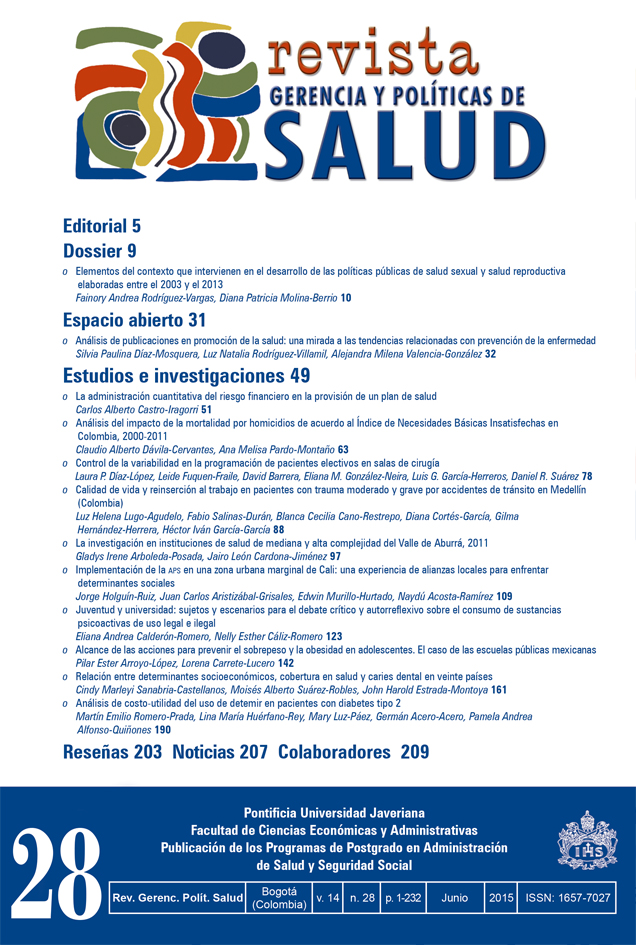Resumen
El Departamento de Cirugía genera una buena parte de los ingresos de un hospital. Este estudio evalúa la variabilidad en la programación de las cirugías y cómo esta atenta contra la eficiencia del servicio. Este estudio implementó un algoritmo para la generación de dos programaciones que luego fueron comparadas con la realizada manualmente en un hospital en Colombia. Las dos programaciones generadas se diferencian entre sí al incluir o no las máximas desviaciones en los tiempos de duración de las cirugías, asumiendo que estas son causadas por factores externas al proceso y pueden ser eliminadas. Los resultados muestran que al emplear un algoritmo automático para programar las cirugías, podrían mejorarse el tiempo de respuesta y la utilización de las salas. Aún más, se pudo concluir que la variabilidad asociada a la programación manual tiene un mayor impacto que la asociada a otros factores en los indicadores de desempeño del servicio.
La revista Gerencia y Políticas de Salud se encuentra registrada bajo la licencia Creative Commons Reconocimiento 4.0 Internacional. Por lo tanto, esta obra se puede reproducir, distribuir y comunicar públicamente en formato digital, siempre que se reconozca el nombre de los autores y a la Pontificia Universidad Javeriana. Se permite citar, adaptar, transformar, autoarchivar, republicar y crear a partir del material, para cualquier finalidad (incluso comercial), siempre que se reconozca adecuadamente la autoría, se proporcione un enlace a la obra original y se indique si se han realizado cambios. La Pontificia Universidad Javeriana no retiene los derechos sobre las obras publicadas y los contenidos son responsabilidad exclusiva de los autores, quienes conservan sus derechos morales, intelectuales, de privacidad y publicidad.
El aval sobre la intervención de la obra (revisión, corrección de estilo, traducción, diagramación) y su posterior divulgación se otorga mediante una licencia de uso y no a través de una cesión de derechos, lo que representa que la revista y la Pontificia Universidad Javeriana se eximen de cualquier responsabilidad que se pueda derivar de una mala práctica ética por parte de los autores. En consecuencia de la protección brindada por la licencia de uso, la revista no se encuentra en la obligación de publicar retractaciones o modificar la información ya publicada, a no ser que la errata surja del proceso de gestión editorial. La publicación de contenidos en esta revista no representa regalías para los contribuyentes.


